Interns Talk Water Quality
On a recent summer afternoon, staff of Lewis Ginter Botanical Garden gathered for a very special presentation. Horticulture research interns Devon Scallan and Kaitlyn Paulchell had been preparing for this day all summer, researching the Garden’s water quality and wanted to share their findings in a meaningful way. This meant not just a regular Power Point presentation, but also interactive learning and hands-on experiences. The Garden’s mission is education after all, and we take our learning seriously. All staff and 600+ Garden volunteers were invited to attend as interns Scallan and Paulchell told of their experiences here this summer and presented research findings on the Garden’s water quality.
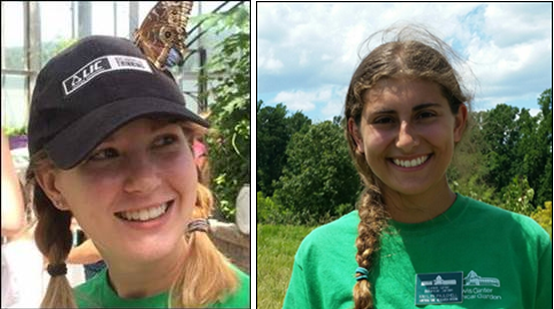
Interns Devon Scallan(Left) and Kaitlyn Paulchell (Right) participated in the Garden’s 12-week horticulture research internship.
Water Quality Analysis with Devon Scallan
Scallan, a recent Virginia Commonwealth University environmental studies graduate, wants to use her time and skills to help people and the planet — interests that led her to pursue the internship with Lewis Ginter this summer. “I love how people and staff at Lewis Ginter are enveloped in the beautiful world of the Garden, but also have an amazing community perspective.”
As a part of her internship experience, Scallan studied benthic macrinvertebrates — aquatic, back-boneless creatures that are visible to the naked eye. Scallan’s research focused on using these organisms as bioindicators of water quality and stream health in many Garden locations, including the Glen, the Vale, Flagler, and West Island gardens. “Macroinvertebrates can be used as bio-indicators because some of the species are very intolerant of pollution,” she explained as she showed us images of common species.
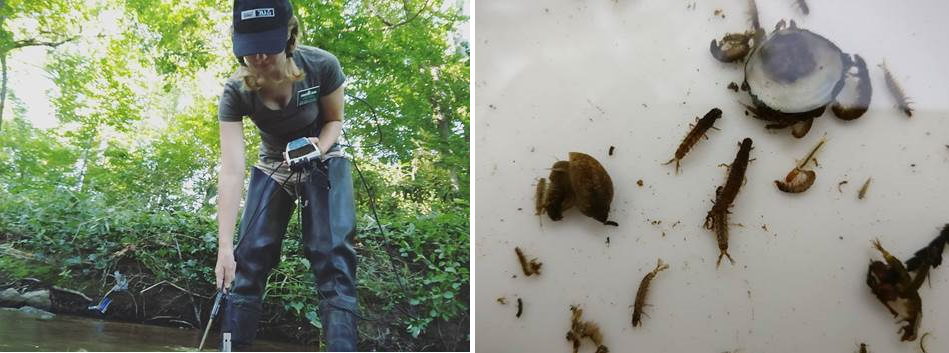
Scallan tests water in the Garden (left). A diverse group of macroinvertebrates collected by Scallan (right).
As she spoke, Scallan’s described how she obtained her research specimens, collecting different species from each of the Garden’s water sources, shuffling them up from the water bottoms and under substrate rocks. “I was looking for abundant populations and an equal abundance of species diversity — variety and evenness,” she said.
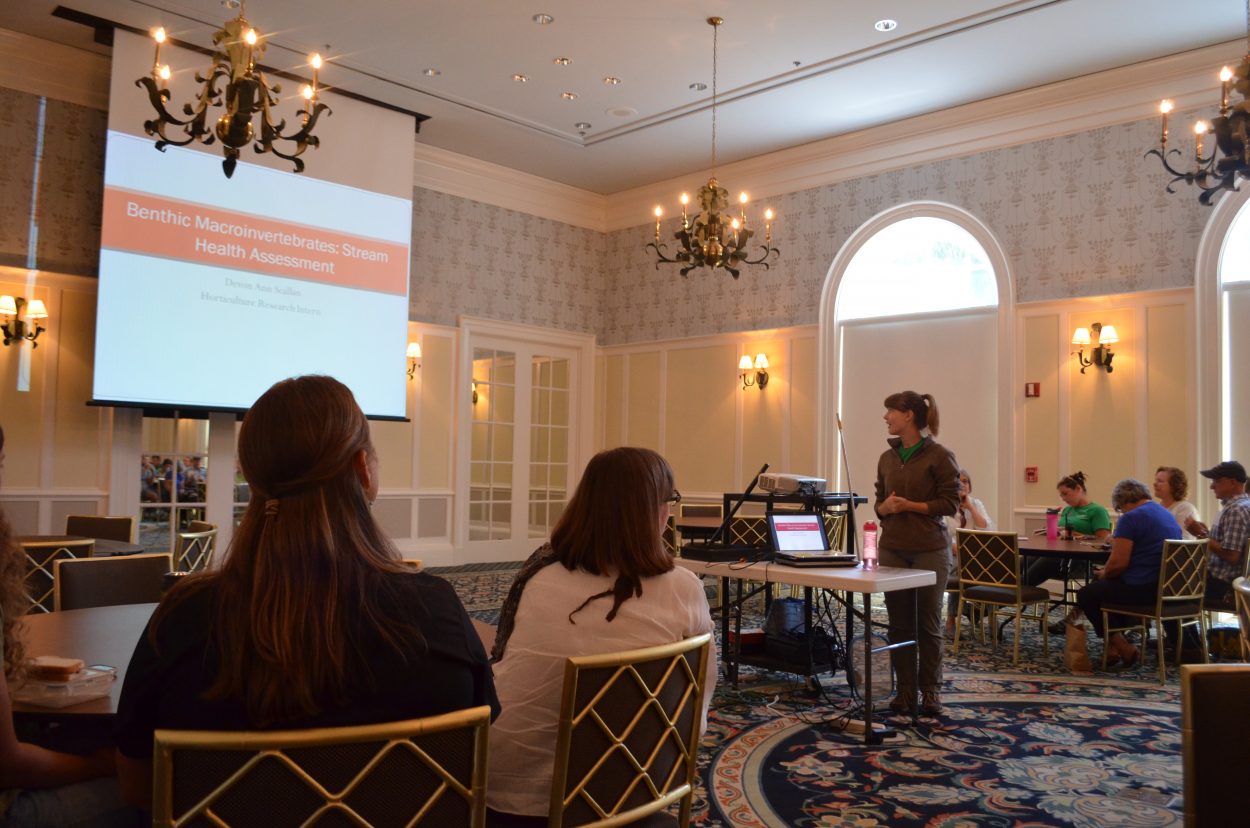
“During this internship, I gained more knowledge and skills that I can use for the future,” research intern Devon Scallan said.
According to her research findings, Scallan’s stated that water outside the gates of the Garden, but still on the Garden property, in areas like the Vale and the Glen, was not as good as she hoped, with only an average population diversity and density. “These conditions could be caused by salamander populations preying on macroinvertebrates or because of chemical influxes and siltation,” she explained. On the other hand, water within the Garden gates (e.g. in Flagler & West Island gardens) had very good ecological conditions with an abundance of multiple species like petus flies, lunged snails and common net spinners.
“I was happily surprised with how healthy the Garden’s water was,” Scallan said. With a fascinating show-and-tell table, staff were also able to experience the various species first-hand. Scallan noted that if we want to promote even better water quality in the region, Lewis Ginter can continue to educate visitors and the community about limiting the use of fertilizers and herbicides on plants.
Algal Growth in the Garden with Kaitlyn Paulchell
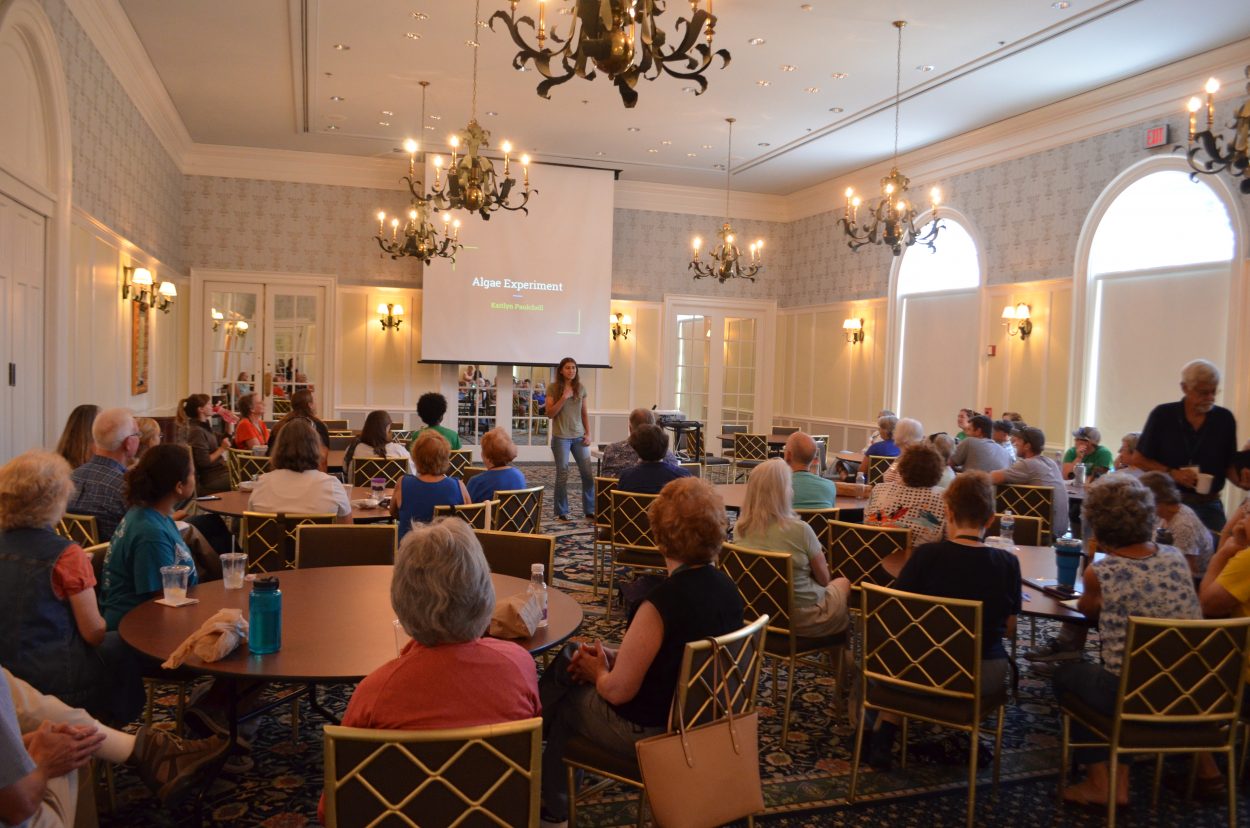
“Every week is different at the Garden, but the community is great and everyone is always happy here,” Paulchell says before delving into her algae experiment.
Kaitlyn Paulchell, a rising junior studying biological systems engineering with a focus on environmental and water quality at Virginia Tech, says she liked the diversity of things she learned while working here and noted that every week working here was different. “I went from harvesting vegetables, to studying endangered plants, to caring for trees,” she says. But the main focus of her internship was to analyze algal growth in the Garden’s bodies of water. “I looked at both the riffle and pooled sections of the water in order to study how algae grows at Lewis Ginter,” Paulchell says. Her goal in this research was to discover non-chemical ways of controlling and reducing unwanted algal growth in all of the Garden water sites.
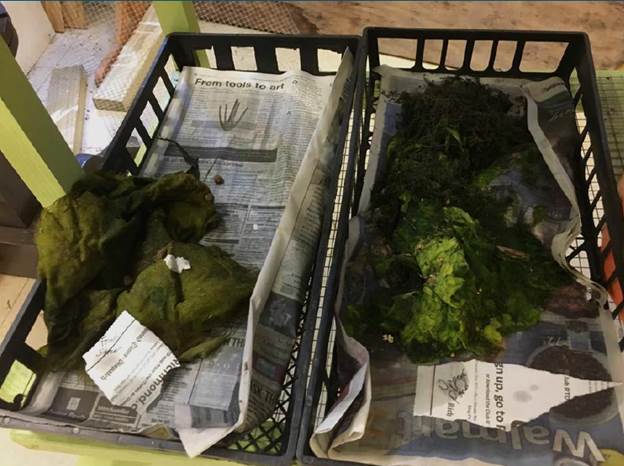
As a part of her presentation, Paulchell displayed algal samples, which feel a bit like felt when dried.
Interns Make a Big Impact
Paulchell noted that the darker the color of the algae, the less healthy the surrounding water generally is. “High and/or unhealthy algae growth in the water can sometimes be due to factors such as high nitrogen and phosphorus levels,” says Paulchell. “Another factor of high algal growth is high levels of sunlight,” she says. “So, I planted a few different kinds of sun-blocking plants such as water lilies and lotus plants, which slow algal growth by inhibiting photosynthesis.” During her analysis, Paulchell also manually removed algae from the water. “I found that the simplest and most effective way to control algae was by manually removing or scooping it up out of the water. In a small space it is easy and fast to clean up and the algae I took out has yet to grow back after 3-4 weeks.” Overall, Paulchell suggested that the Garden and staff further pursue an integrated approach, using both sun-blocking plants as bio-controls in addition to manually removing algae that is already present.
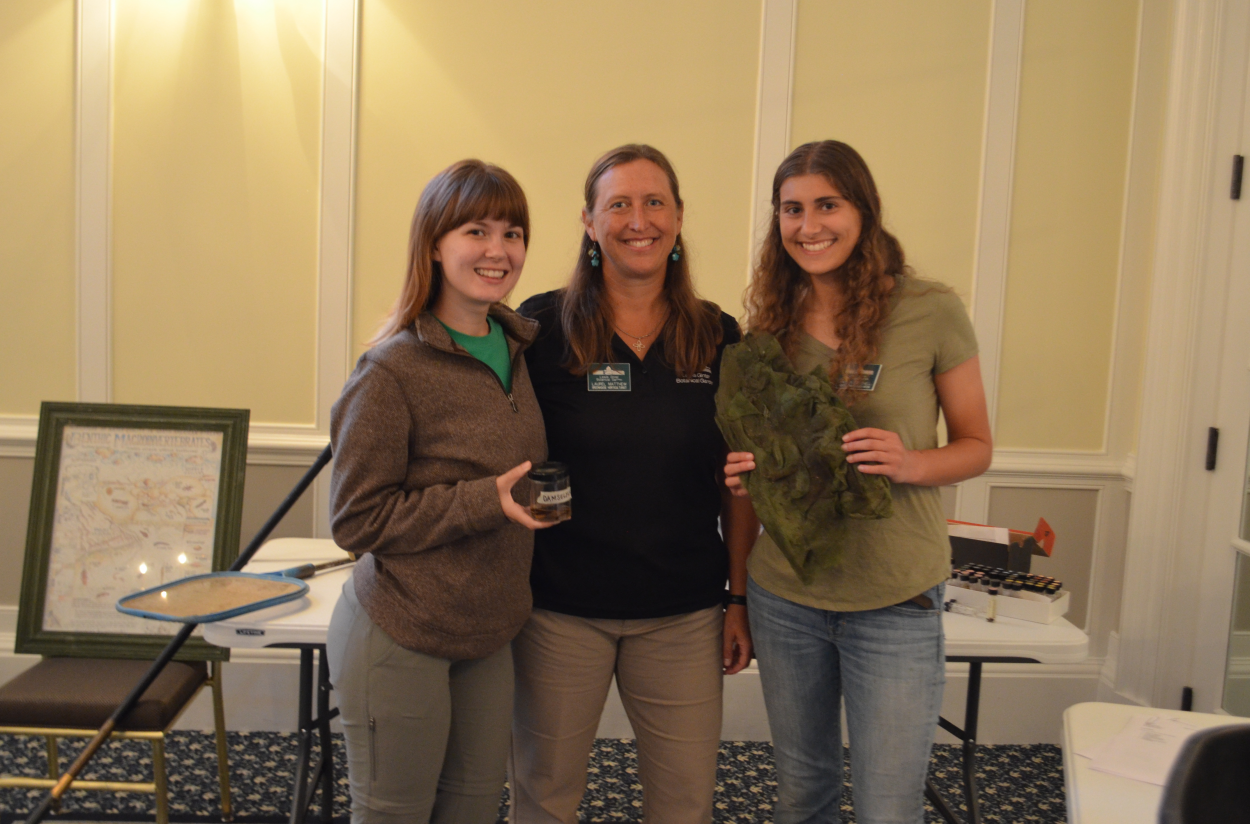
Scallan, Paulchell, and supervisor Horticulturist Laurel Matthew (center) present macroinvertebrate and dried algae samples at the show-and-tell table.
And with that, interns Scallan and Paulchell finished their presentations. Paulchell heads back to Virginia Tech and we are happy to have Scallan stay on as a seasonal gardener at Lewis Ginter. So if you see us fishing algae out of our ponds, putting more water plants in our ponds to block the sun, or if you see us counting macroinvertebrates you’ll know it’s all for the sake of science and improving water quality here at the Garden and in our community.